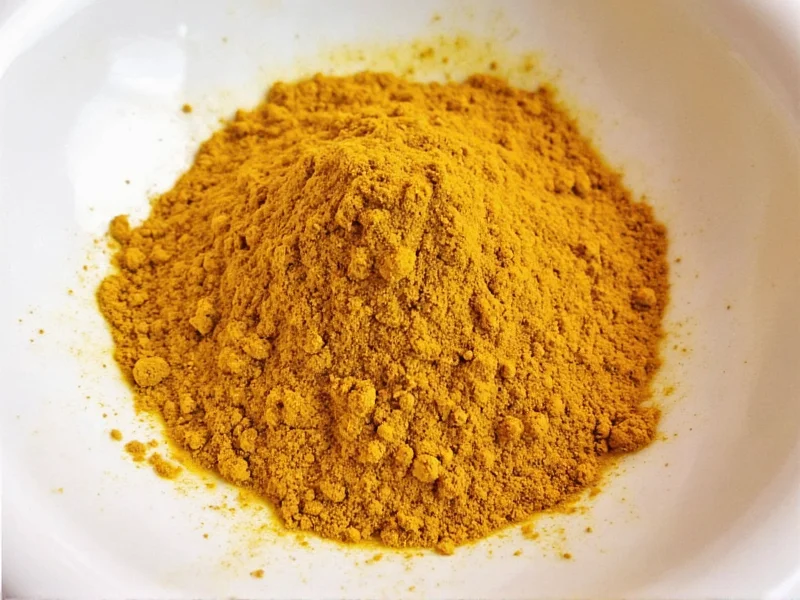Understanding Mustard Powder's Culinary Role
Mustard powder serves as a versatile dry seasoning that adds tangy depth without altering recipe moisture levels. This dehydrated form of mustard seeds provides consistent flavor in dry rubs, spice blends, and shelf-stable products where liquid mustard would compromise texture. When seeking a mustard powder alternative, consider both flavor profile and functional properties in your specific application.
Top Mustard Powder Substitutes Ranked by Effectiveness
Not all replacements work equally well across different culinary applications. The ideal substitute depends on whether you're making a marinade, dry rub, salad dressing, or baked good. Here's how common alternatives perform in various cooking scenarios:
| Substitute | Best For | Conversion Ratio | Flavor Notes |
|---|---|---|---|
| Prepared yellow mustard | Marinades, dressings, wet applications | 1 tbsp = 1 tsp powder | Milder, adds moisture |
| Crushed mustard seeds | Dry rubs, pickling, spice blends | 1.5 tsp = 1 tsp powder | More pungent, textured |
| Horseradish powder | Meat glazes, hearty dishes | ⅔ tsp = 1 tsp powder | Sharper heat, different flavor |
| Wasabi powder | Asian-inspired dishes | ½ tsp = 1 tsp powder | Distinctive heat, green color |
| Curry powder | Complex spice blends | 1 tsp = 1 tsp powder | Additional spices alter profile |
Detailed Analysis of Mustard Powder Alternatives
Prepared Mustard as Substitute
When exploring how to replace mustard powder in cooking, liquid mustard proves most versatile. Yellow mustard works best for most applications, while Dijon offers more complexity. Remember that mustard powder substitute measurements require adjusting other liquids in your recipe—reduce additional water or vinegar by 1 teaspoon per tablespoon of mustard added. This substitution shines in salad dressings, barbecue sauces, and cheese spreads where moisture isn't problematic.
Mustard Seeds: The Closest Flavor Match
For mustard powder alternative for dry rubs, nothing beats freshly crushed yellow or brown mustard seeds. Grind seeds in a spice grinder until reaching powder consistency, or use them coarsely crushed for texture variation. This substitute maintains the authentic mustard flavor profile while providing similar functional properties. When making homemade spice blends or dry marinades, this represents the most chemically identical replacement.
Specialty Alternatives for Specific Applications
Chef-developed homemade mustard powder replacement blends can solve niche requirements. For pickling applications, combine ½ teaspoon turmeric with ¼ teaspoon vinegar powder per teaspoon of mustard powder needed. Gluten-free cooks often use this blend as a gluten-free mustard powder replacement since commercial mustard powder sometimes contains wheat fillers. In vegan cheese recipes, nutritional yeast blended with a touch of horseradish powder creates remarkable complexity.
Professional Tips for Successful Substitution
Experienced cooks know that successful ingredient substitution requires understanding the role in your specific recipe. When determining what can I use instead of mustard powder, consider these factors:
- Moisture sensitivity: Dry applications require dry substitutes; wet applications can accommodate liquid alternatives
- Flavor prominence: Is mustard a background note or featured flavor?
- Reaction with other ingredients: Mustard's emulsifying properties affect texture in dressings
- Processing requirements: Some substitutes need blooming in liquid to activate flavors
Avoid the common mistake of overcompensating—mustard powder's concentrated flavor means substitutes often need less than expected. Start with 75% of the recommended substitution ratio, then adjust to taste after the dish has cooked.
When Substitutions Won't Work
Certain applications demand authentic mustard powder. In commercial spice blends with long shelf lives, the preservative properties of mustard powder prevent clumping that liquid alternatives would cause. For scientific applications like metal polishing or laboratory procedures, no culinary substitute adequately replaces mustard powder's specific chemical composition. In these rare cases, seeking specialty suppliers remains the only viable option for best substitute for mustard powder in recipes with non-culinary purposes.
Creating Your Own Custom Mustard Powder Blend
For cooks wanting complete control, making your own mustard powder blend solves multiple dietary concerns. Combine equal parts ground yellow mustard seeds, turmeric, and a pinch of ascorbic acid (vitamin C powder) to preserve color. Store in an airtight container away from light. This mustard powder replacement for pickling maintains consistent quality for 6-8 months and avoids potential allergens in commercial blends.
Can I use regular mustard instead of mustard powder in a dry rub?
No, liquid mustard will make dry rubs paste-like and prevent proper adhesion to meat. For dry applications, use crushed mustard seeds or a turmeric-vinegar powder blend instead. If you must use prepared mustard, reduce other liquids significantly and extend drying time before cooking.
How do I substitute mustard powder in salad dressing?
For salad dressings, use 1 tablespoon of prepared yellow mustard per teaspoon of mustard powder called for in the recipe. This maintains emulsification properties while providing similar tang. Dijon works well for more complex dressings, but remember it's stronger—start with half the amount and adjust to taste.
Is there a gluten-free mustard powder replacement?
Yes, pure ground mustard seeds are naturally gluten-free. Many commercial mustard powders contain wheat starch as an anti-caking agent. For guaranteed gluten-free substitution, use freshly ground yellow mustard seeds or make your own blend with turmeric and vinegar powder. Always check labels if purchasing pre-made alternatives.
What's the best mustard powder substitute for pickling?
For pickling, crushed yellow mustard seeds work best as they release flavor gradually during the preservation process. Use 1.5 teaspoons of coarsely crushed seeds per teaspoon of mustard powder required. This provides authentic flavor development without the cloudiness that liquid mustard would introduce to your pickling brine.
Can I make mustard powder from scratch?
Yes, spread yellow or brown mustard seeds on a baking sheet and dry in a 200°F oven for 20-30 minutes until completely dry and brittle. Cool completely, then grind in a spice grinder until powdery. Store in an airtight container away from light. Freshly made mustard powder has more vibrant flavor but shorter shelf life than commercial versions—use within 3 months for best results.











 浙公网安备
33010002000092号
浙公网安备
33010002000092号 浙B2-20120091-4
浙B2-20120091-4